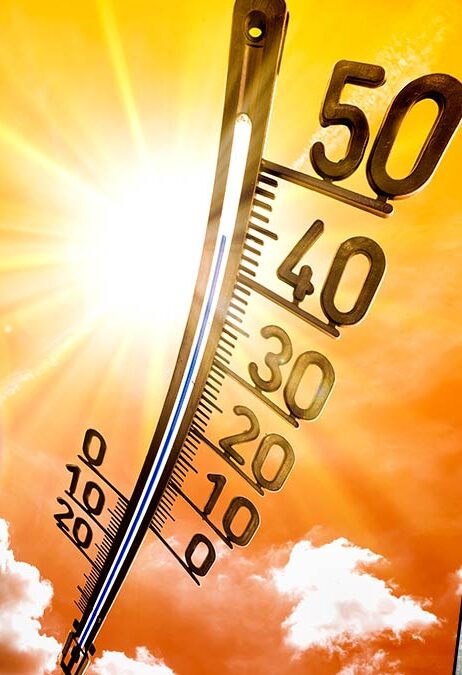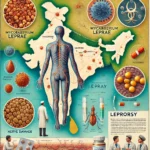A heatwave is a prolonged period of excessively hot weather, which may be accompanied by high humidity, especially in oceanic climate countries. Definitions of a heatwave vary according to the climate and the usual weather conditions in an area. Generally, a heatwave is considered to occur when temperatures are significantly higher than the historical averages for a particular region for an extended period, typically several days or more.
Characteristics of a Heatwave
- High Temperatures: Sustained high temperatures, often exceeding the normal maximum temperature for a region by several degrees.
- Duration: Lasts for several days to weeks.
- Humidity: Can be accompanied by high humidity, which exacerbates the perceived heat.
Causes
- High-Pressure Systems: Often caused by high-pressure systems that trap warm air in an area.
- Climate Change: Increased frequency and intensity due to global climate change.
- Geographical Factors: Urban areas tend to experience more intense heatwaves due to the heat island effect.
Effects
- Health Risks: Heat exhaustion, heat stroke, dehydration, and exacerbation of pre-existing health conditions.
- Environment: Wildfires, droughts, and damage to crops and ecosystems.
- Infrastructure: Overloaded power grids, damaged roads, and buckled train tracks.
- Side Effects of Vitamin D Shots and Their Hidden Link With Blocked Arteries

- AIDS(Acquired Immunodeficiency Syndrome)

- leprosy : Also known as hansen’s disease

Safety Tips
- Stay Hydrated: Drink plenty of water and avoid alcohol and caffeine.
- Stay Indoors: Remain in air-conditioned buildings during peak heat hours.
- Limit Physical Activity: Avoid strenuous activities during the hottest part of the day.
- Wear Appropriate Clothing: Light, loose-fitting clothing helps to stay cool.
- Check on Vulnerable Individuals: Elderly, children, and those with pre-existing conditions need extra care.
Examples of Recent Heatwaves
- Europe 2022: Record-breaking temperatures in many parts of Europe.
- North America 2021: Pacific Northwest experienced unprecedented high temperatures.
- Australia 2019-2020: Severe heatwaves contributing to massive bushfires.
Heatwaves are becoming more common and intense due to global warming, necessitating improved preparation and response strategies to mitigate their impacts.




